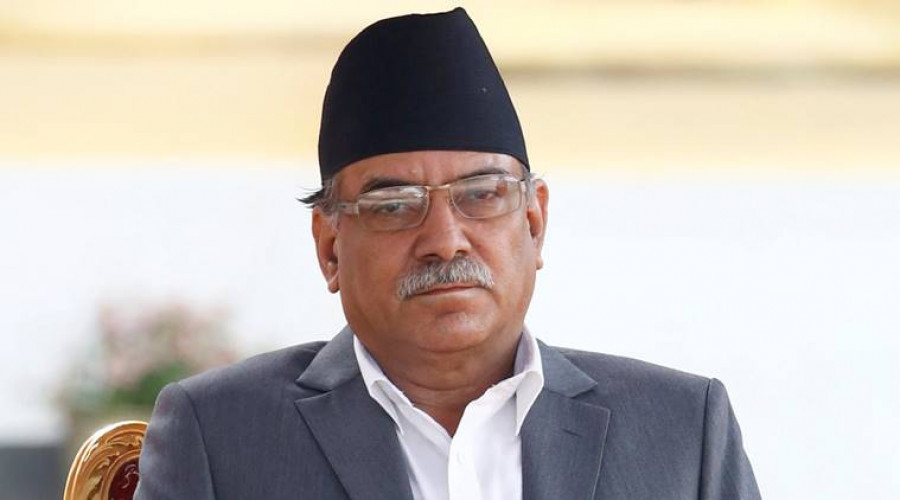
But single bench of Justice Ishwor Khatiwada refuses to issue an interim order as demanded by petitioners.
The Supreme Court on Friday issued a show cause notice against Prime Minister and CPN (Maoist Centre) chair Pushpa Kamal Dahal asking him to clarify why he should not be booked for insurgency-era killings as demanded by the petitioners.
It has given Dahal 15 days to explain (in person or through a representative) his three-year-old statement that he takes responsibility for the deaths of the 5,000 among the 17,000 people killed during the Maoist insurgency. Responding to two separate writ petitions filed by Gyanendra Aran, an advocate and a conflict victim, and Kalyan Budhathoki, also a Maoist victim from the same period, a single bench of Justice Ishwor Prasad Khatiwada, however, refused to issue an interim order as demanded by the petitioners.
Aran and Budhathoki had demanded an order for investigating Dahal by keeping him in custody. “The petitions are primarily related to the transitional justice process. It will be appropriate to decide on the issue in the final hearing,” reads the order. “An interim order need not be issued in the absence of adequate ground to do so.”
Aran and Budhathoki had registered the writ petitions on Tuesday demanding criminal investigation against Dahal, who had publicly taken responsibility for the deaths of thousands. Aran had filed the petition on behalf of the victims of murder while Budhathoki represents the victims of insurgency-era looting and torture.
Talking to the Post, Budhathoki expressed happiness at the court issuing a show cause notice to the sitting prime minister. “We were expecting an interim order for his arrest. However, the court’s decision to seek his clarification is a step ahead in bringing Dahal to book,” he told the Post. “Many thought the court would scrap our petitions as groundless. They have been proven wrong.”
The final hearing on the petitions will commence when Dahal furnishes a written clarification as per the court’s order. Unwilling to register the case against Dahal, the court administration had first rejected the petitions from Aran and Budhathoki. However, the court found its administration’s decision to close the door for seeking legal remedy illogical, and allowed for the petitions’ registration.
The ruling Maoist Centre and its splinters have objected to the Supreme Court’s move to register and push ahead the writ petitions against Dahal. Their meeting on Friday decided to object to any move “aimed at derailing the peace-process.”
“All the cases related to the people’s war need to be resolved through the transitional justice mechanism. The court should not intervene,” Dev Gurung, the Maoist Centre general secretary, told the media after the meeting. “We will hold interactions with the media and civil society on this and appeal to the concerned parties to conclude the process without delay.”
Following the court’s ruling to register the petitions against Dahal, the government on Thursday forwarded a bill to amend the Enforced Disappearances Enquiry, Truth and Reconciliation Commission Act in the parliament. The bill, however, has already landed in controversy as it aims to provide amnesty for murder.












